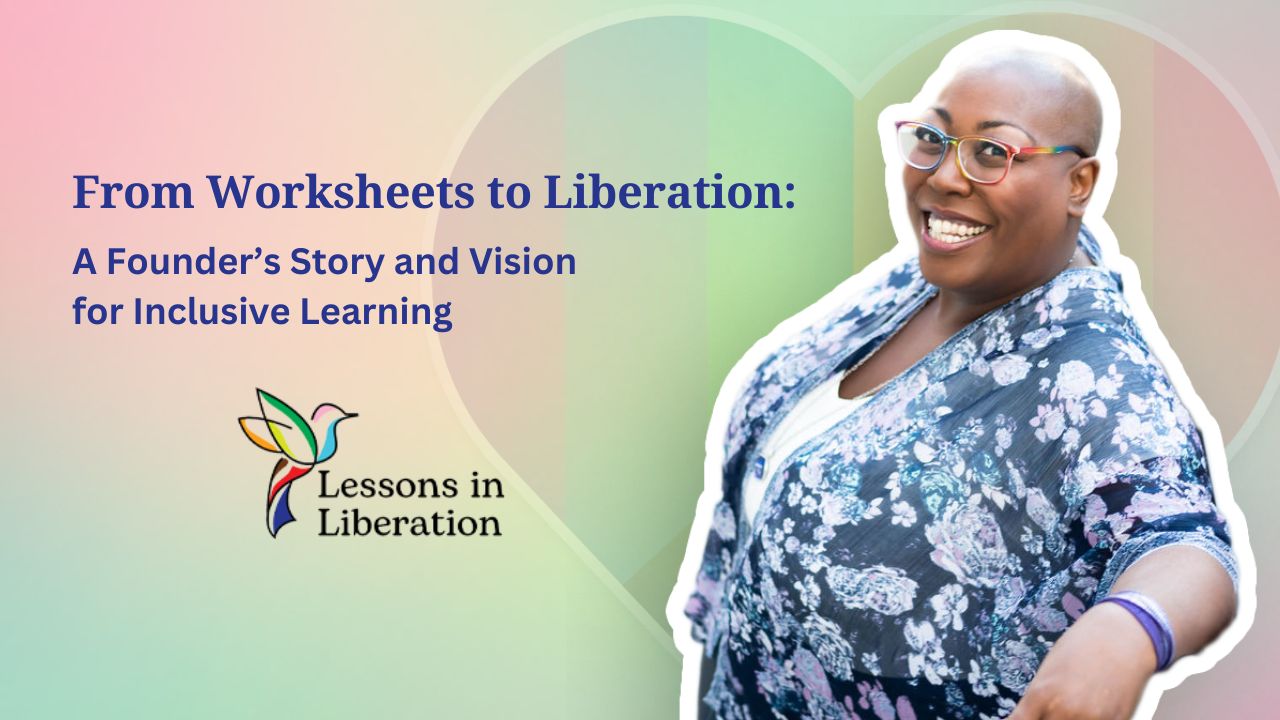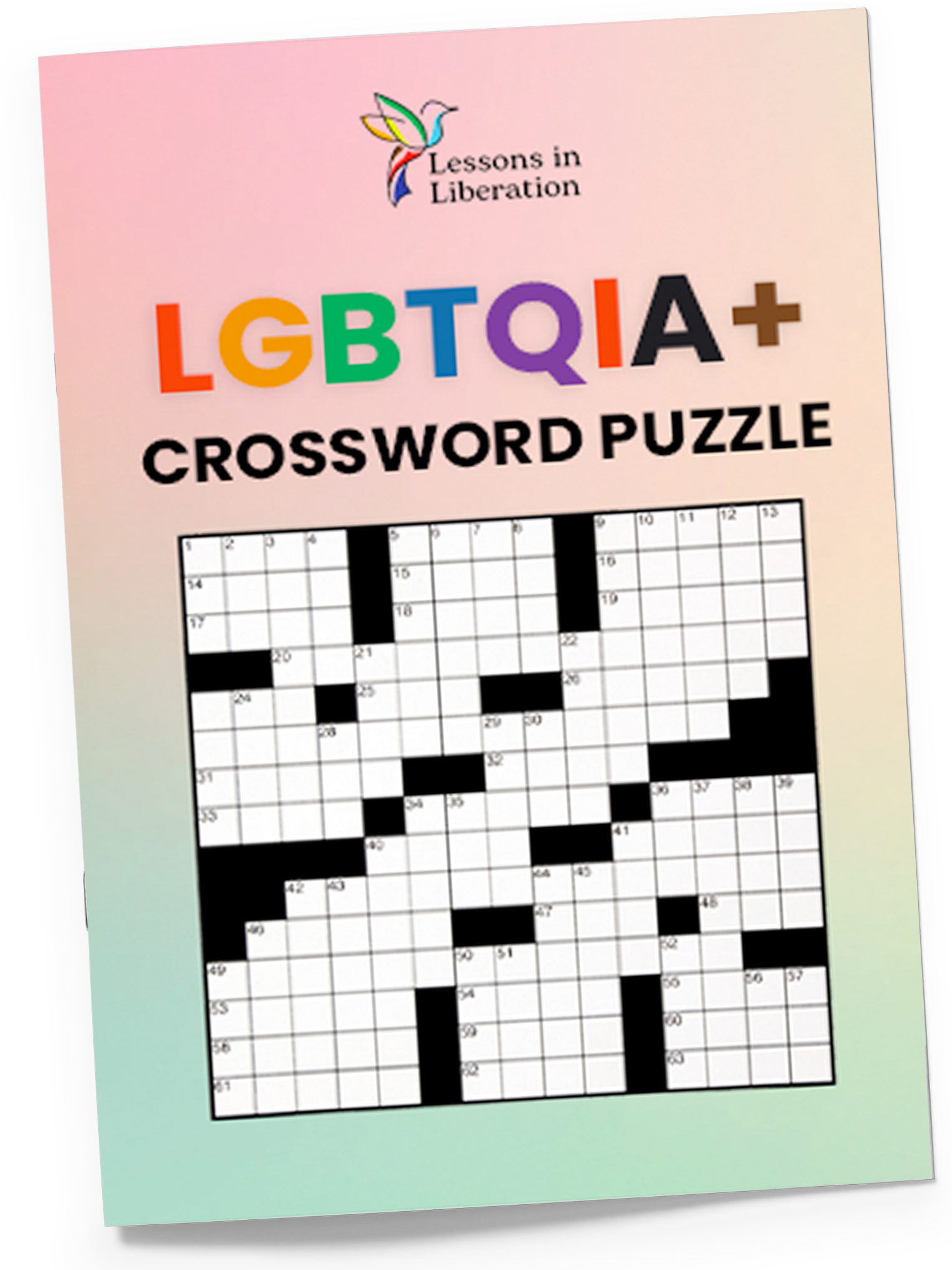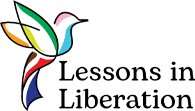
From Worksheets to Liberation: A Founder’s Story and Vision for Inclusive Learning
Allow me to reintroduce myself (in my Jay-Z voice). My name is Sarah Graham, and I am the creator, liberator, and founder of Lessons-in-Liberation™. My passion lies in crafting interactive and engaging lessons that challenge learners to think critically about injustices and commit to embracing diversity.
The Beginnings of a Passion
My passion for learning started in childhood. I remember playing school with my sister, spending hours creating perfect math worksheets. By the time I was done meticulously lining up the numbers just right, my sister had often abandoned our “school” game, but I’d save the worksheets in my pink & yellow Lisa Frank folder until the next learning opportunity. Even as a little girl, I knew the value of a good handout.
When I told my sister this story as an adult, she laughed and admitted she hated playing school because I always made her finish the worksheets. That was my first lesson in teaching: if students aren’t engaged, joyful, and personally connected, they won’t truly learn. This principle has guided my teaching philosophy ever since, and has shaped the intersectional curriculum my company creates today.
I honed my “worksheet making” skills at the University of Northern Colorado, one of the oldest and top teacher programs in the nation, earning a degree in special education. Armed with this knowledge, I dove into the world of education with the same goal as when I was a child—to engage learners. Little did I know how much my personal experiences and identities would impact my teaching journey.
My liberation story explores my personal road to freedom, with learning as my north star. Watch the video to hear more about my journey through education, and check out my keynote speaking opportunities.
My Journey to Authentic Representation
Without learning, there can be no liberation. And without authentic connection there can be no learning. After nearly 20 years in the classroom— as a special education, ELD, and English teacher, then as an instructional coach, and Special educator director— I realized that the lessons I learned as a child about engaging youth on a personal level are more crucial now than ever.
As a proud Fat, Black, Queer Woman, I know the pain of lacking representation in classrooms. It’s even more painful when the rare representation is full of racial tropes and stereotypes. As Chimamanda Ngozi Adichie stated, “the problem with stereotypes is not that they are untrue, but that they are incomplete. They make one story become the only story.” Stereotypes do not capture the multiple layers, nuances, and perspectives of our unique intersectionalities
Equally problematic are the narratives only focused on Black trauma or overcoming injustices. This makes me wonder: How does the push for only highlighting Black excellence erase the narratives of ordinary everyday Black folks who just want to sit in the park and read a book without being harassed or stared at? And how do I teach learners that these everyday ordinary individuals are just as deserving of peace and equality?
Learning should be both a mirror—reflecting oneself—and a window—leading students into new worlds. But what happens when you only see your reflection, or when the glass is broken entirely? According to a 2022 survey by GLSEN, only 54% of middle schoolers and 46% of high schoolers perceive their studies as relevant to their life experiences. Knowing all too well this feeling of invisibility, I vowed never to let such erasure occur in my classroom. This commitment gave rise to my formal education rebellion.
My Formal Education Rebellion
If you were to ask my mother, father, siblings, auntie, cousins, preacher, teachers, or anyone else who encountered young Sarah, they’ll tell you that I have always been stubborn. Or in my mother’s words, (which were actually the exact same words she said to me when I came out to her in my early 20s) “Well, Sarah is going to do what Sarah wants to do. You always have.” This rebel spirit found its vessel in education. I worked with some of the most vulnerable youth—from those with severe emotional and behavioral needs, and students who are twice exceptional with gifted talents and disabilities, to young men in jail on trial for manslaughter. I became the fiercest advocate for my students’ special education rights, often battling school and district personnel to ensure their voices were heard.
This evolution led to my curriculum writing career 2.0. No longer was my sister my sole student; I now crafted lessons for many diverse learners at multiple levels of need, while remaining engaging, thoughtful, rigorous, and fun. I witnessed my students’ triumphs and challenges, and through it all, their need to be seen, to express themselves, and to be heard remained constant. It has been one of the greatest honors of my life to serve in this role, and now I get to bring these transformative lessons to students around the globe.
Our comprehensive Lessons-in-Liberation™ modules are more than just lessons; they are gateways to empowerment. They equip learners with joy and the critical thinking skills necessary to tackle society’s injustices as they face an uncertain future.
Join us on this transformative journey as we redefine education, one intersectional lesson at a time. Together, we can build a future where every identity is not only acknowledged but celebrated. Schedule your complimentary discovery call today, and let’s take the first step together in this education revolution!

Engage learners with this complimentary hands-on activity –
download it for free here!
Engage learners with this complimentary hands-on activity – download it for free here!
